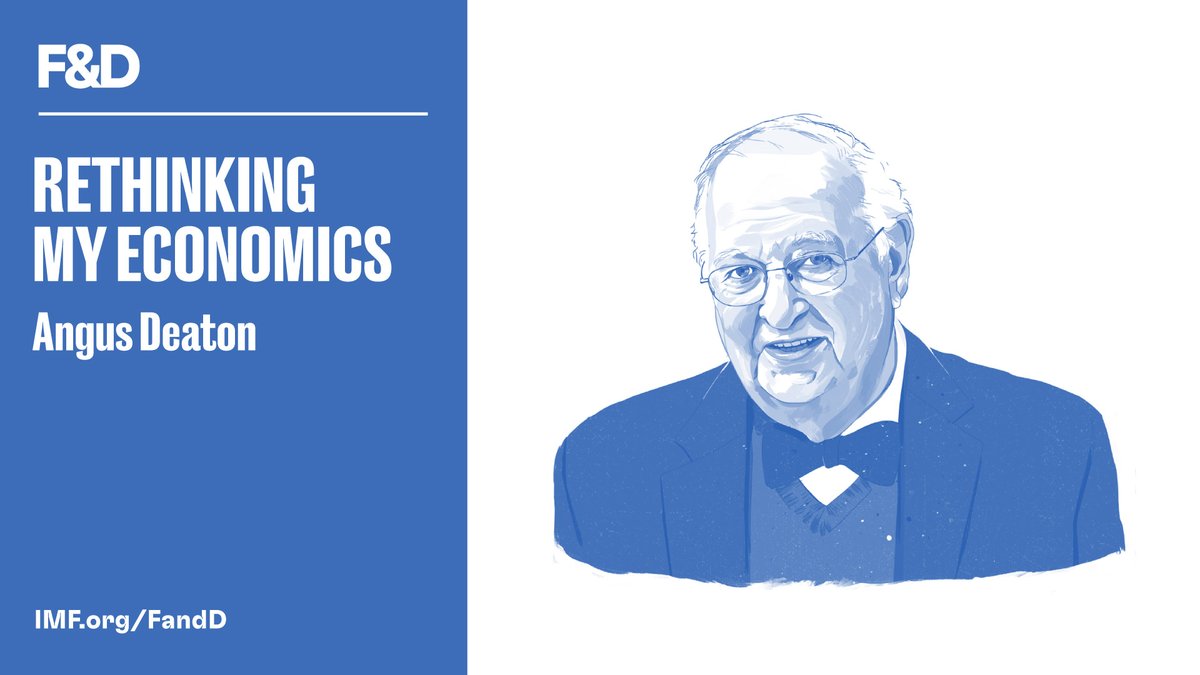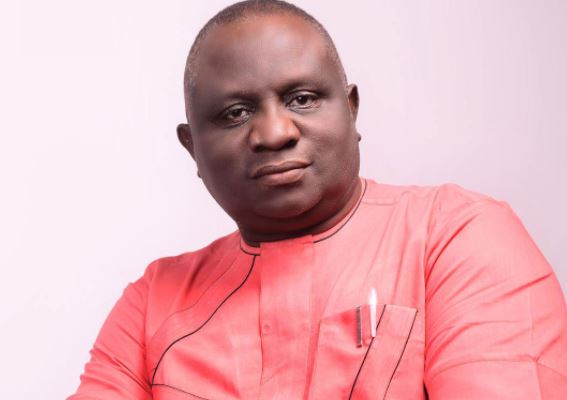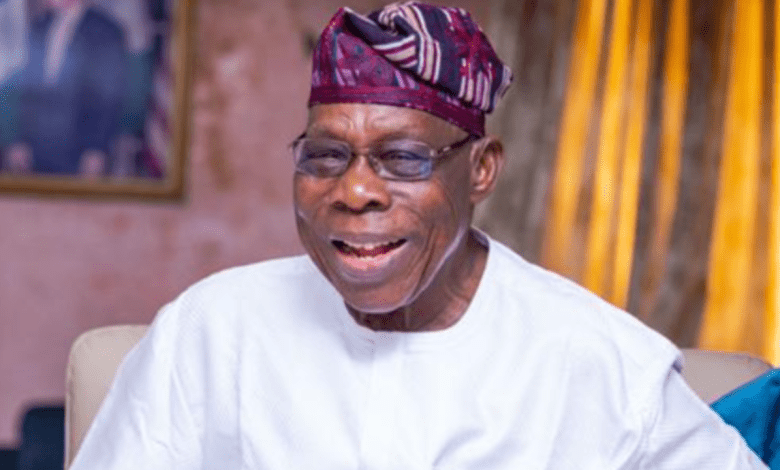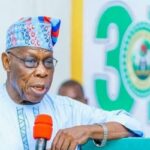
World Bank Has Been Deceiving Africa; We Have No Reason to be Poor – Obasanjo
August 31, 2024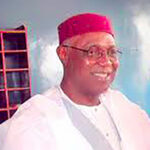
Protest against economic destruction not treason – Afenifere
September 12, 2024Angus Deaton
Questioning one’s views as circumstances evolve can be a good thing
Economics has achieved much; there are large bodies of often nonobvious theoretical understandings and of careful and sometimes compelling empirical evidence. The profession knows and understands many things. Yet today we are in some disarray. We did not collectively predict the financial crisis and, worse still, we may have contributed to it through an overenthusiastic belief in the efficacy of markets, especially financial markets whose structure and implications we understood less well than we thought. Recent macroeconomic events, admittedly unusual, have seen quarrelling experts whose main point of agreement is the incorrectness of others. Economics Nobel Prize winners have been known to denounce each other’s work at the ceremonies in Stockholm, much to the consternation of those laureates in the sciences who believe that prizes are given for getting things right.
Like many others, I have recently found myself changing my mind, a discomfiting process for someone who has been a practicing economist for more than half a century. I will come to some of the substantive topics, but I start with some general failings. I do not include the corruption allegations that have become common in some debates. Even so, economists, who have prospered mightily over the past half century, might fairly be accused of having a vested interest in capitalism as it currently operates. I should also say that I am writing about a (perhaps nebulous) mainstream, and that there are many nonmainstream economists.
- Power. Our emphasis on the virtues of free, competitive markets and exogenous technical change can distract us from the importance of power in setting prices and wages, in choosing the direction of technical change, and in influencing politics to change the rules of the game. Without an analysis of power, it is hard to understand inequality or much else in modern capitalism.
- Philosophy and ethics. In contrast to economists from Smith and Marx through John Maynard Keynes, Friedrich Hayek, and even Milton Friedman, we have largely stopped thinking about ethics and about what constitutes human well-being. We are technocrats who focus on efficiency. We get little training about the ends of economics, on the meaning of well-being—welfare economics has long since vanished from the curriculum—or on what philosophers say about equality. When pressed, we usually fall back on an income-based utilitarianism. We often equate well-being to money or consumption, missing much of what matters to people. In current economic thinking, individuals matter much more than relationships between people in families or in communities.
- Efficiency is important, but we valorize it over other ends. Many subscribe to Lionel Robbins’ definition of economics as the allocation of scarce resources among competing ends or to the stronger version that says that economists should focus on efficiency and leave equity to others, to politicians or administrators. But the others regularly fail to materialize, so that when efficiency comes with upward redistribution—frequently though not inevitably—our recommendations become little more than a license for plunder. Keynes wrote that the problem of economics is to reconcile economic efficiency, social justice, and individual liberty. We are good at the first, and the libertarian streak in economics constantly pushes the last, but social justice can be an afterthought. After economists on the left bought into Chicago’s deference to markets—“we are all Friedmanites now”—social justice became subservient to markets and a concern with distribution was overruled by attention to the average, often nonsensically described as the “national interest.”
- Empirical methods. The credibility revolution in econometrics was an understandable reaction to the identification of causal mechanisms by assertion, often controversial and sometimes incredible. But the currently approved methods, randomized controlled trials, differences in differences, or regression discontinuity designs, have the effect of focusing attention on local effects, and away from potentially important but slow-acting mechanisms that operate with long and variable lags. Historians, who understand about contingency and about multiple and multidirectional causality, often do a better job than economists of identifying important mechanisms that are plausible, interesting, and worth thinking about, even if they do not meet the inferential standards of contemporary applied economics.
- Humility. We are often too sure that we are right. Economics has powerful tools that can provide clear-cut answers, but that require assumptions that are not valid under all circumstances. It would be good to recognize that there are almost always competing accounts and learn how to choose between them.
Second thoughts
Like most of my age cohort, I long regarded unions as a nuisance that interfered with economic (and often personal) efficiency and welcomed their slow demise. But today large corporations have too much power over working conditions, wages, and decisions in Washington, where unions currently have little say compared with corporate lobbyists. Unions once raised wages for members and nonmembers, they were an important part of social capital in many places, and they brought political power to working people in the workplace and in local, state, and federal governments. Their decline is contributing to the falling wage share, to the widening gap between executives and workers, to community destruction, and to rising populism. Acemoglu and Johnson have recently argued that the direction of technical change has always depended on who has the power to decide; unions need to be at the table for decisions about artificial intelligence. Economists’ enthusiasm for technical change as the instrument of universal enrichment is no longer tenable (if it ever was).
I am much more skeptical of the benefits of free trade to American workers and am even skeptical of the claim, which I and others have made in the past, that globalization was responsible for the vast reduction of global poverty over the past 30 years. I also no longer defend the idea that the harm done to working Americans by globalization was a reasonable price to pay for global poverty reduction because workers in America are so much better off than the global poor. I believe that the reduction in poverty in India had little to do with world trade, and that its reduction in China could have happened with less damage to workers in rich countries had Chinese policies caused it to save less of its national income, so that more of its growth of manufacturing could have been absorbed at home. I had also seriously underthought my ethical judgments about trade-offs between domestic and foreign workers. We certainly have a duty to aid those in distress, but we have additional obligations to our fellow citizens that we do not have to others.
I used to subscribe to the near consensus among economists that immigration to the US was a good thing, with great benefits to the migrants and little or no cost to domestic low-skilled workers. I no longer think so. Economists’ beliefs are not unanimous on this but are shaped by econometric designs
that may be credible but often rest on short-term outcomes. Longer-term analysis over the past century and a half tells a different story. Inequality was high when America was open, was much lower when the borders were closed, and rose again post Hart-Celler (the Immigration and Nationality Act of 1965) as the fraction of foreign born people rose back to its levels in the Gilded Age. It has also been plausibly argued that the Great Migration of millions of African Americans from the rural South to the factories in the North would not have happened if factory owners had been able to hire the European migrants they preferred.
Economists could benefit by greater engagement with the ideas of philosophers, historians, and sociologists, just as Adam Smith once did. The philosophers, historians, and sociologists would likely benefit too.
Angus Deaton is the Dwight D. Eisenhower Professor of Economics and International Affairs, Emeritus, at the Princeton School of Public and International Affairs at Princeton University. He is the 2015 recipient of the Nobel Memorial Prize in Economic Sciences.
Published by IMF F&D Magazine Weekly Newsletter on March 2024. https://www.imf.org/en/Publications/fandd/issues/2024/03/Symposium-Rethinking-Economics-Angus-Deaton


